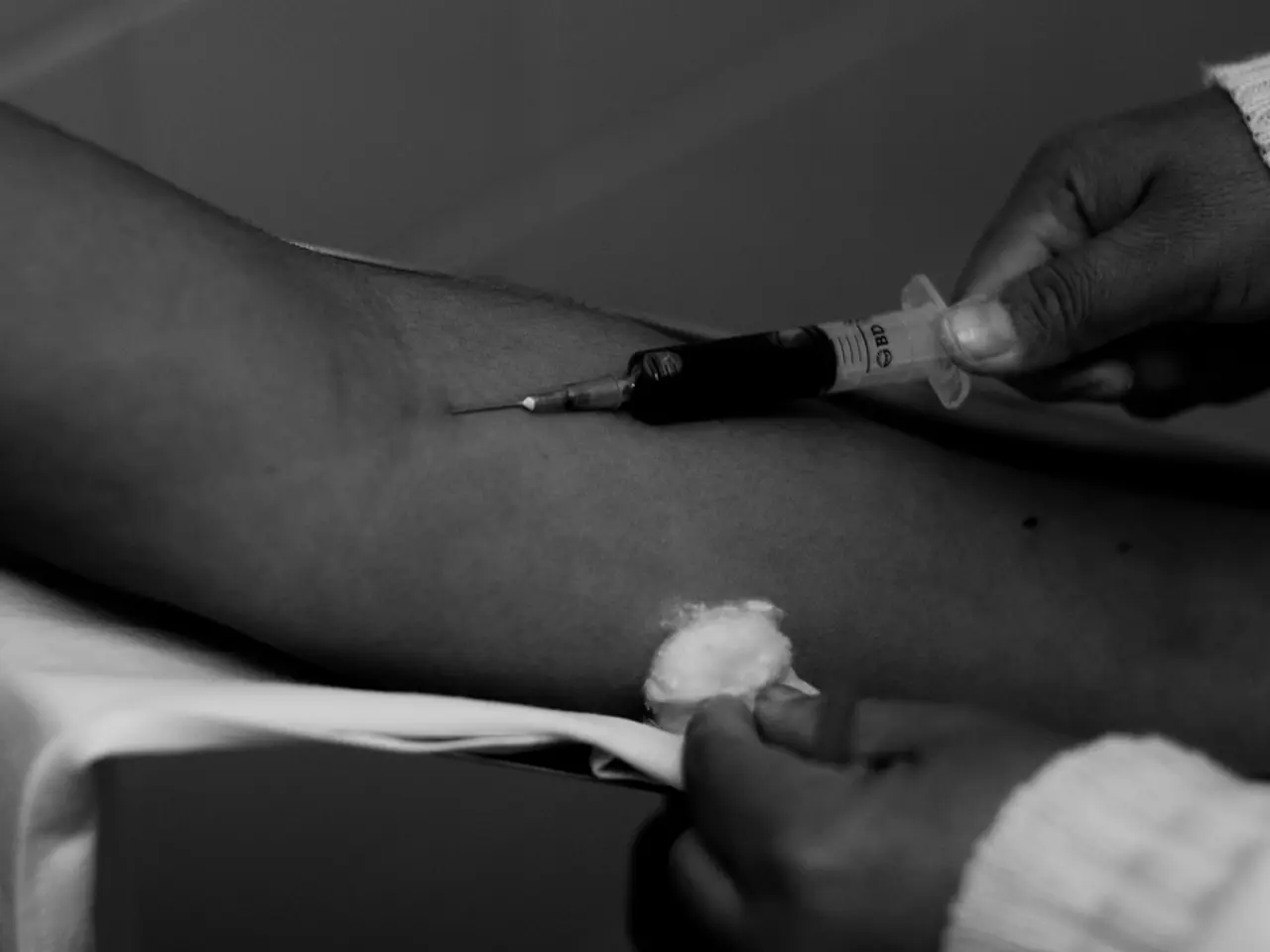Criminal activity surges with reduced pension benefits in the northern region - Criminals attracted by weight loss injections in the north
In recent years, there has been a growing concern about the forgery of prescriptions for weight-loss medications, such as Ozempic, Wegovy, and Mounjaro, across Germany. Despite a lack of specific data on the financial damage caused nationwide, the increase in such cases has been observed by the Federal Criminal Police Office (BKA) over the past two years, particularly for weight-loss medications.
The surge in popularity of these drugs, produced by Novo Nordisk, is a significant contributing factor. Their ability to aid rapid weight loss has made them highly sought-after, leading to concerns about illegal marketing and unauthorized sales in Europe, including potential legal scrutiny of Novo Nordisk's advertising practices in Spain.
Counterfeit versions of these medications, containing semaglutide (the active ingredient in Ozempic and Wegovy) and tirzepatide (Mounjaro), have been reported in various markets internationally. For example, Operation Pangea XVII in 2025 targeted the sale of unapproved and counterfeit medicines globally, including these drugs slipping past customs and regulatory checks.
The impact on pharmacies and police in affected countries, including Germany, is significant. Pharmacists must detect forged prescriptions and ensure the authenticity of medications dispensed, while law enforcement agencies combat illegal sale networks. In Hamburg, the number of forged prescriptions for Ozempic and other preparations has decreased due to the use of tamper-proof e-prescriptions. However, the wave of forgeries continues, with forgers often working around these measures.
Stolen prescriptions with real patients' names have been appearing in Hamburg, originating from "mafia-like organizations." These forgeries are costing pharmacies money, and if a forgery is discovered later in the pharmacy or reported by the health insurance company, the pharmacy usually suffers the losses.
The reasons for forged prescriptions and counterfeit drug circulation include high demand driven by quick weight-loss effects, limited access or long waiting times for legitimate prescriptions, and potential illegal profiteering on black markets or online channels.
The statutory health insurers in Germany have reported individual cases of forged prescriptions for Ozempic or Wegovy across the country, but there are no particular trends or clusters. Supply shortages for these medications have also been reported in the past.
Despite the challenges, efforts are being made to combat this issue. In Schleswig-Holstein and Mecklenburg-Vorpommern, the number of forgeries has decreased recently due to the introduction of e-prescriptions. Moreover, the high demand for these medications is being marketed as lifestyle products on social media, raising awareness about the potential risks associated with their unauthorized use.
As more data becomes available, a clearer picture of the extent and impact of this issue in Germany will emerge. In the meantime, it is crucial for pharmacists, law enforcement agencies, and consumers to remain vigilant and report any suspected cases of forged prescriptions or counterfeit medications to the appropriate authorities.
- To combat the growing issue of forged prescriptions for weight-loss medications like Ozempic, Wegovy, and Mounjaro, community policy should be implemented to ensure strict monitoring of prescriptions, vocational training for pharmacists to detect forgeries, and increased cooperation between law enforcement agencies and pharmacies.
- Amidst the surge in demand for these drugs due to their rapid weight-loss effects, there is a need for vocational training programs for healthcare professionals to provide access to legitimate prescriptions and education on the risks associated with the use of counterfeit medications, particularly for conditions like medical-conditions, health-and-wellness, and weight-management.
- With the increasing concern about forged prescriptions and counterfeit drug circulation, it's essential for general-news media outlets to report on this issue, shedding light on crime-and-justice aspects, scientific research related to these medications, and the steps being taken by authorities to protect consumers and ensure the safety of health-and-wellness products in the market.




